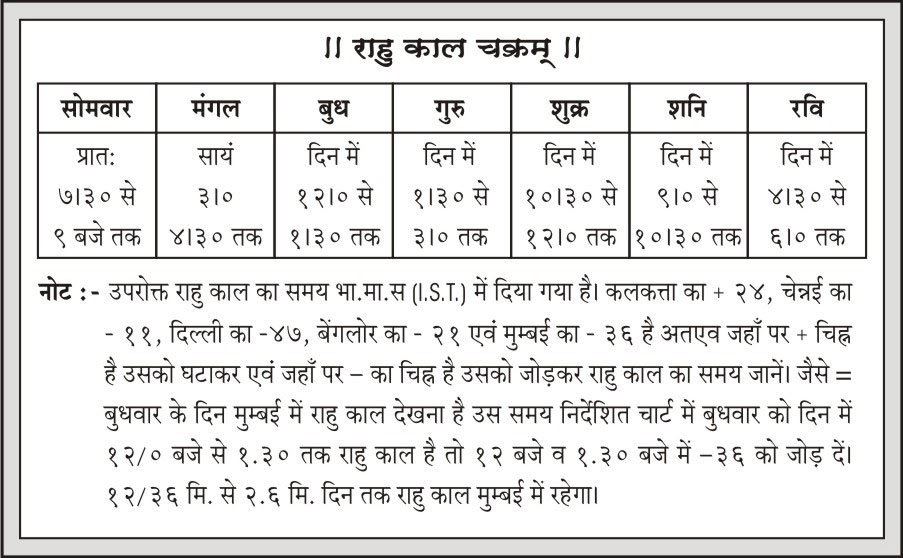
AstroSane According to Vedic astrology Rahu is an inauspicious planet. Jyotish During transition of planets the time under the influence of Rahu should be avoided to do any auspicious work. Doing Puja, Mantra, Jap, Hawan or Yagya to propitiate auspicious planets during this time is interfered by Rahu due to its malefic nature. If one does Puja, Mantra, Jap, Hawan or Yagya during Rahu Kaal then desired results are not achieved. According to the universal astrology philosophy Hence it is important to consider Rahu Kaal before starting any new work. Astrology By doing so, possibility of achieving desired results is increased.
Rahukaal in Vedic astrology
The planets in Hindu Vedic astrology are Sun, Moon, Mars, Mercury, Venus, Jupiter, Saturn, Rahu and Ketu. Rahu and Ketu do not have a physical body, they are considered as one of the eight segments of the day. Both of these are said to be inauspicious in Indian astrology and Rahukaal is depicted as the most inauspicious period of the day. Ancient astrology states that Rahu is the northern end and Ketu is the southern end, and that together they have the ability to eclipse the Sun and remove the light it casts on the universe. Due to this, astrology considers both of them inauspicious for inauspicious and adverse tendencies.
Rahukal timings of each day
Monday - Second Muhurta - 7:30 am to 9:00 am
Tuesday - Seventh Muhurta - Day - 3:00 to 4:30
Wednesday – Fifth Muhurta – Day – 12:00 to 1.30
Thursday – Sixth Muhurta – Day – 1:30 to 3:00
Friday - Fourth Muhurta - Morning - 10:30 to 12:00
Saturday - Third Muhurta - Morning - 9:00 to 10:30
Sunday - Eighth Muhurta - Evening - 4:30 to 6:00
The Rahu Kaal is calculated entirely on the basis of sunrise and sunset and thus varies every day. The 12 hours thus obtained are divided into eight equal parts. Each of these twelve parts is of one and a half hours. Yes, it is kept in mind that in reality there is some change every day in the time of rising of the sun and due to this reason this time may also slip a bit.